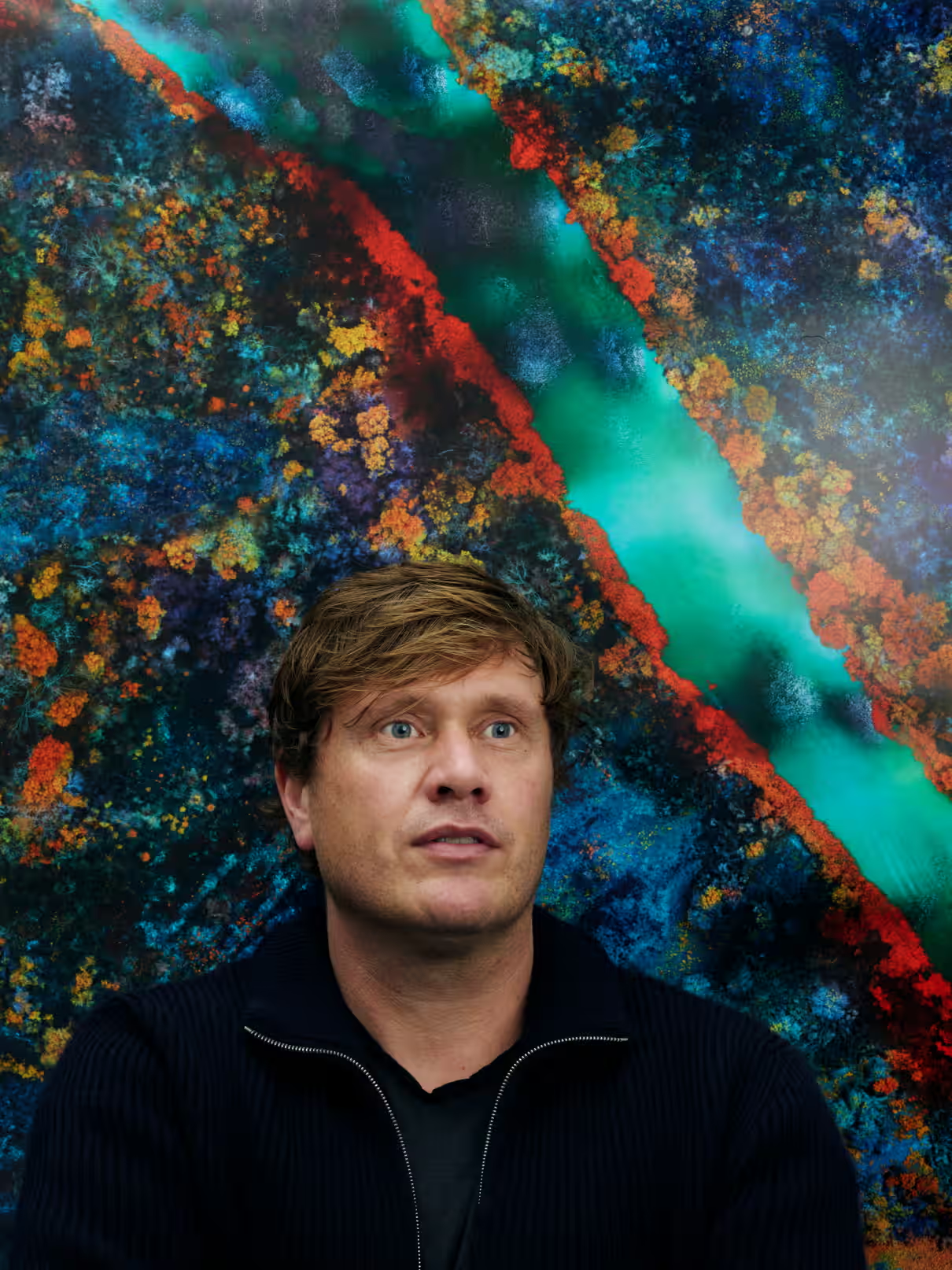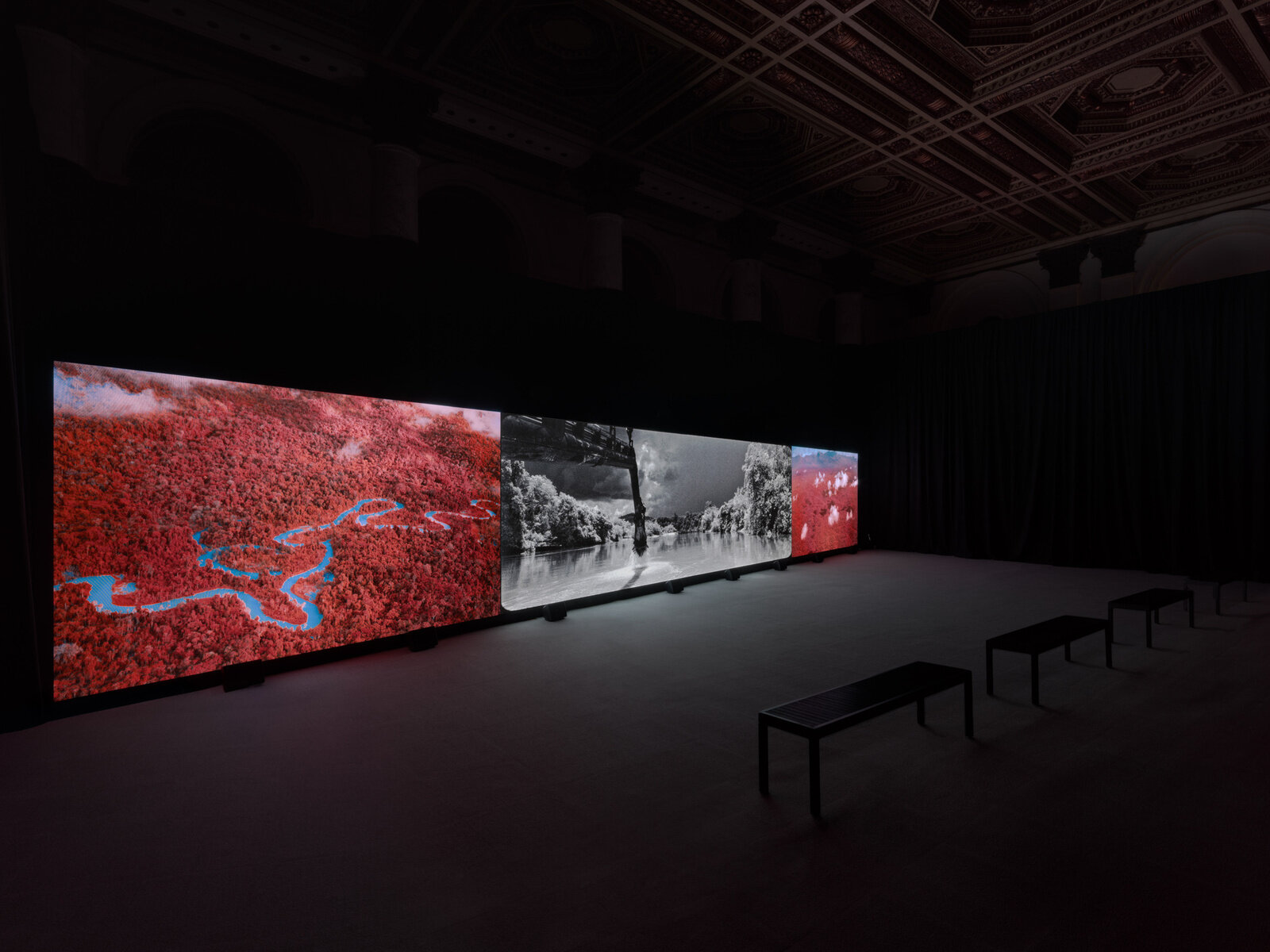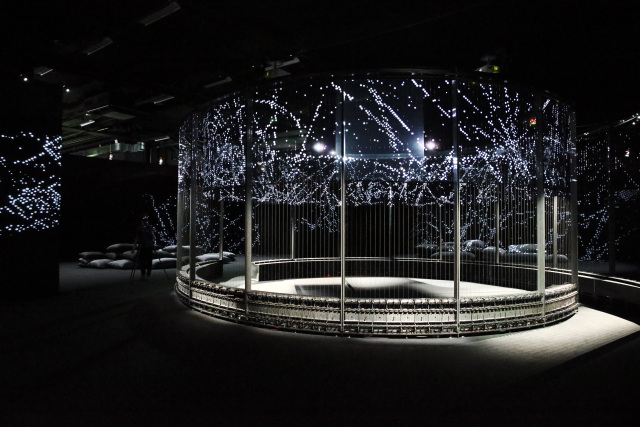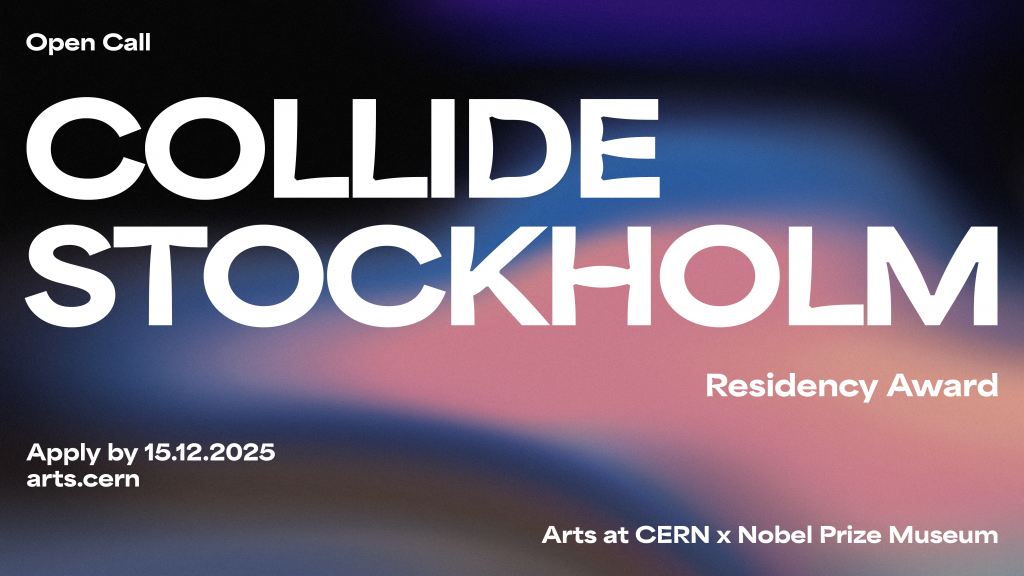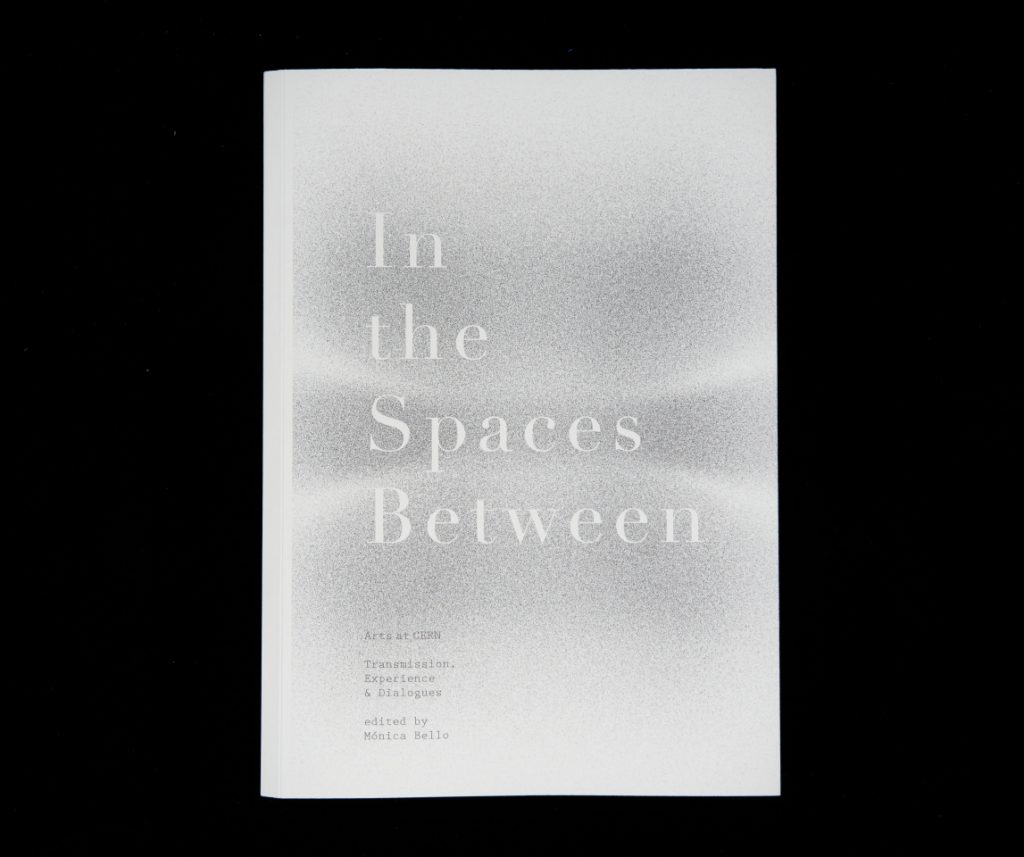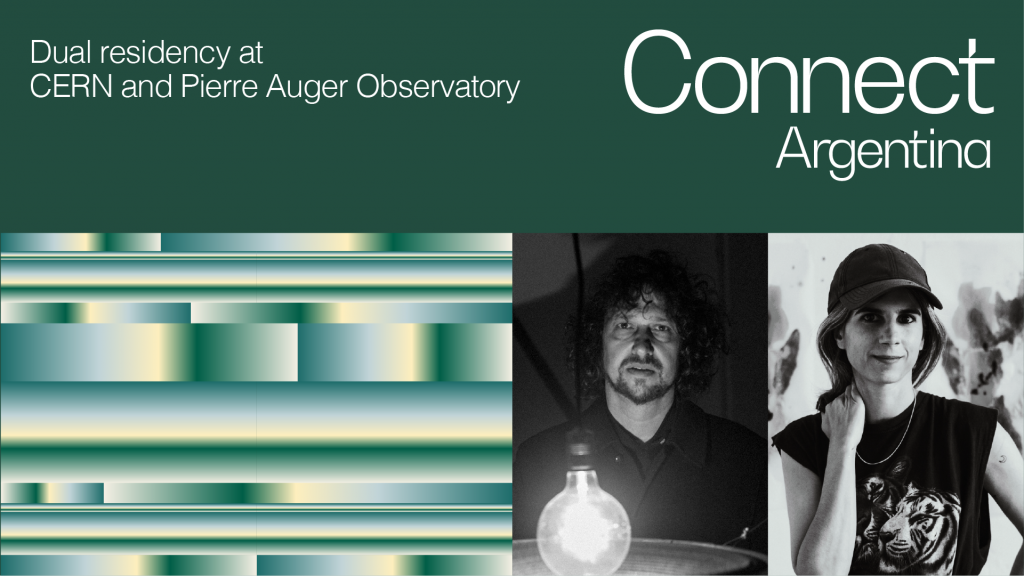- Author
- Ana Prendes
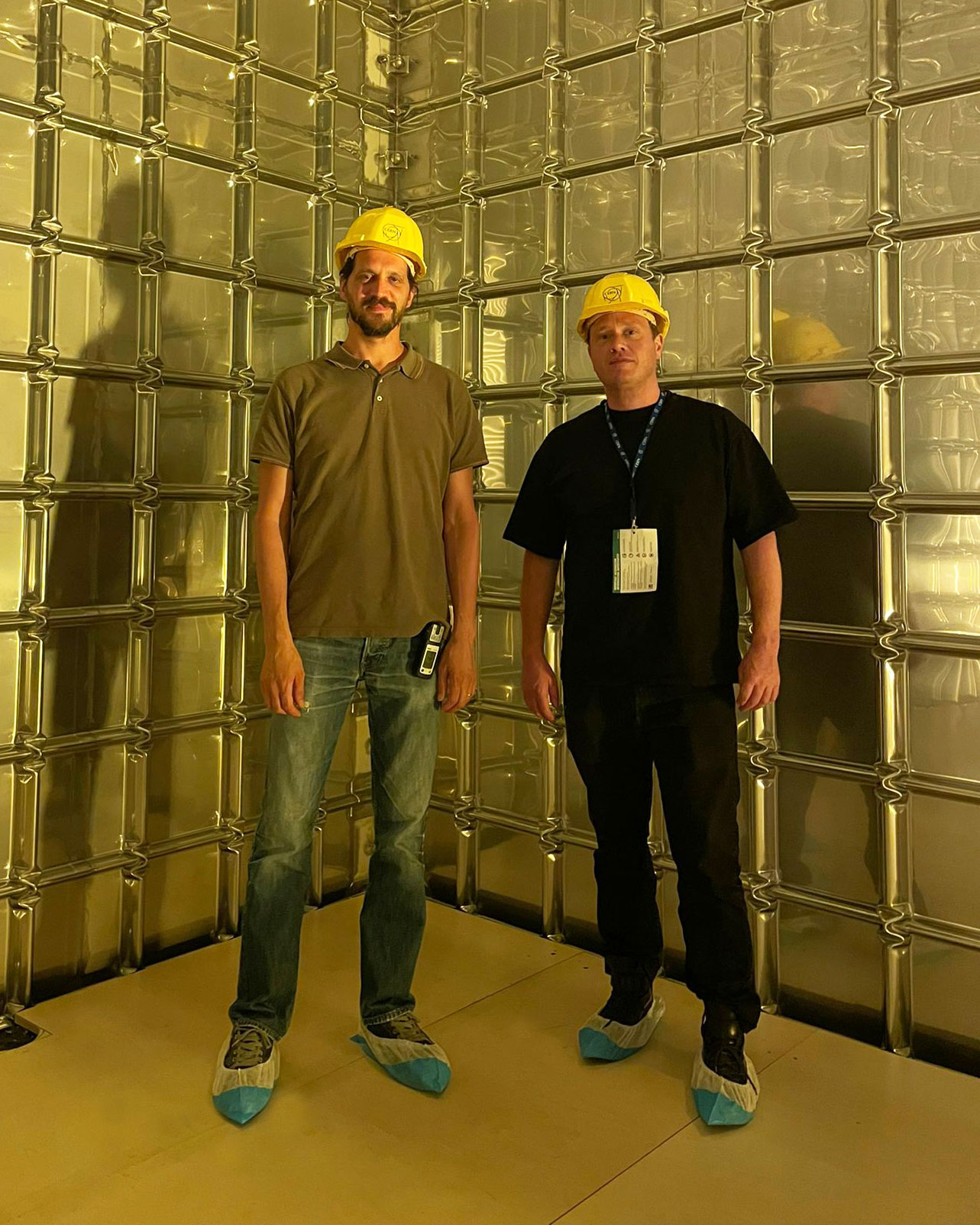
Following his initial exchanges with scientists, Richard Mosse will research imaging technologies at CERN for a project investigating the environmental devastation of the Amazon Rainforest
Irish artist Richard Mosse is renowned for experimenting with unconventional photographic technologies. His work expands the visual vocabulary of documentary imagery, focusing on both conflict and environmental crises. Over a decade ago, Mosse gained critical recognition with Infra, a photographic series that captured war-torn environments of the Democratic Republic of Congo. Shot using Kodak Aerochrome, a discontinued infrared film originally employed for military surveillance, Infra documents the violence of the conflict through an unfamiliar chromatic lens of pinks and reds.
Mosse’s inquiry into registering the ‘unseen’ has evolved across the use of different technologies. In Incoming, he uses a military-grade thermal camera to document the journeys of refugees fleeing war and persecution across Europe, the Middle East, and North Africa. The camera’s intended function—to surveil and control borders—becomes a tool for revealing the detached gaze of governmental power structures, and the dehumanisation of displaced bodies.

More recently, Mosse has turned his attention to the Amazon rainforest, a ecosystem devastated by industrial farming and environmental deforestation. In Tristes Tropiques, he employs Geographic Information System (GIS) technology to process thousands of multispectral images taken by drones. These images create large-scale photographic maps, rendered in unexpected vibrant and contrasting hues, document environmental degradation across Brazil’s notorious ‘arc of fire.’
Mosse reflectively harnesses multispectral imaging tools used by scientists to detect deforestation, carbon emissions, and pollution in fragile ecosystems. In a podcast with Monocle, Mosse reflects on the repurposement of these technologies, ‘Scientists use them to detect environmental changes. It reveals both the extent of damage and, unintentionally, a beautiful colour palette, which becomes a metaphorical layer in the narrative I’m trying to depict.’ Through this juxtaposition, Mosse questions how we engage with the violence embedded in landscapes we have learned to aestheticise.

His work brings him to CERN, where he will work with scientists, engineers, and staff as part of a residency with Arts at CERN. This stay will allow him to further his research into multispectral imaging technologies to develop a new work as part of Arts at CERN’s commissions programme, supported by the Didier and Martine Primat Foundation and its Odonata Fund.
In reflecting on the residency, Mosse shared, ‘CERN’s network of experts and their extraordinary level of understanding of scientific phenomena will help me dive into the forensic data I’m capturing with the multispectral camera. By reassigning the red, green, and blue channels, I hope to reveal the traces of environmental destruction in a way that could engage the viewer in a more impactful and meaningful way than traditional imagery of the rainforest on fire’.
